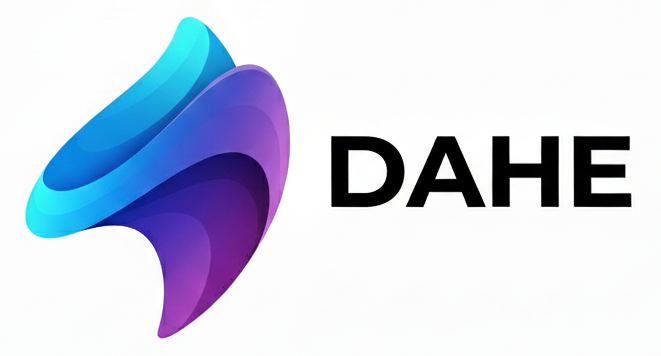[ad_1]
# Outline
## Introduction
– Explanation of Freelancing
– History of Freelancing and its emergence
– The rise of Freelancing in the 21st century and why it’s the future of work
## Advantages of Freelancing
– Flexible working hours
– Control over workload
– Choice of projects
– Greater Independence
– More control over income
## Disadvantages of Freelancing
– Inconsistent work
– No job security
– No health insurance or other benefits
– Unclear tax situation
– No holiday pay or paid leave
## How to Start Freelancing
– Identifying your area of expertise
– Defining your value proposition
– Building a portfolio
– Finding clients
– Creating a sustainable work schedule
## The Role of Technology in Freelancing
– Importance of technological advancements
– Platforms for freelancers
– Tools for remote collaboration
– Communication and payment methods
## Freelancing in Different Industries
– Opportunities in IT and Digital Marketing
– Opportunities in Creative Industries
– Opportunities in Healthcare
– Opportunities in Education
## Future of Freelancing
– Predictions for the growth of freelancing
– Increasing acceptance of freelancing
– Advancement of digital technology
– Impact of global events such as the Covid-19 pandemic
## Conclusion
– Recap of the rise of freelancing
– Advantages of freelancing
– Future of freelancing as a cornerstone of the new economy
## FAQs
1. What is the best way to find freelance work?
2. Should I create a personal website to showcase my work?
3. What skills are in high demand for freelancers?
4. Is freelancing a suitable option for first-time job seekers?
5. Are there any downsides to freelancing long-term?
# The Rise of Freelancing: Why It’s the Future of Work
In today’s fast-paced economy, traditional nine-to-five jobs are slowly losing their lustre to the ever-increasing demand for more flexible work arrangements. Freelancing, which was previously viewed as an alternative to traditional employment options, is now becoming increasingly popular – so much that it is predicted to hold the future of work. In this article, we will discuss the rise of freelancing, its advantages, disadvantages and future prospects.
## Introduction
Freelancing refers to the act of offering services to individuals or businesses on a per-project or part-time basis. Freelancers are individuals who are self-employed and work with more than one client at the same time. Freelancers are responsible for finding their own clients, negotiating contracts, and setting their own pay rates.
## Advantages of Freelancing
Freelancing comes with many benefits that traditional jobs do not offer. It offers flexibility in working hours, autonomous control of the workload, and unlimited choice of projects. One of the most significant advantages of freelancing is the freedom that comes with it. Many people pursue freelance careers because they seek greater independence in their work lives and want more control over their income.
## Disadvantages of Freelancing
Freelancing isn’t all sunshine and rainbows. When freelancing, it can be problematic to maintain a steady workflow, as there can be months without assignments. Freelancing typically comes with no job security, no health insurance, and no other benefits. There can also be unclear tax situations and no holiday pay or paid leave.
## How to Start Freelancing
To begin a successful freelancing career, you must establish your area of expertise. First, identify your skill set and determine your unique value proposition. Once you’ve established your expertise, build a portfolio. Next, you’ll need to find clients to work for and create a sustainable work schedule.
## The Role of Technology in Freelancing
The remarkable increment in the number of freelancers is due to technological advancements that have made remote work possible. It has become easier than ever before for freelancers to work remotely via electronic devices from any location. Many platforms, like Upwork, Fiverr, and Freelancer, exist to help freelancers find work. There are also various tech tools for collaborating remotely and communicating effectively with clients and vendors, like Zoom, Slack, etc.
## Freelancing in Different Industries
Freelancing provides possibilities across numerous sectors, including IT, digital marketing, creative industries, healthcare, and education. Freelancers who work in the IT or Digital marketing sector have access to a range of new products and services, such as cybersecurity. Still, there are also opportunities in creative industries such as video editing, photography, and painting. Healthcare has also become an area of growth for freelance work, with many medical professionals finding freelance work as an alternative to working in a hospital or clinic. Finally, freelance work in education offers many opportunities for tutors and trainers.
## Future of Freelancing
The future of work lies with freelancing, which is highly predicted by many industry experts due to various factors. Digital technologies bolster freelancing opportunities, global events such as Covid-19, and the sharing economy also promote the rise of freelancing. Many believe we can expect further growth in freelance work over the next ten years as it becomes more acceptable and mainstream.
## Conclusion
In conclusion, the freelancing industry has grown over the years and is showing no indication of a slowdown. The growing acceptance of remote work and the digital economy is only making freelancing more attractive. Furthermore, as technological advancements keep pushing towards making remote work even more seamless, freelancing will continue to offer more opportunities around the world.
## FAQs
1. What is the best way to find freelance work?
A: There are many freelancing platforms that allow freelancers to find work. Some of the most popular are Upwork, Fiverr and Freelancer.
2. Should I create a personal website to showcase my work?
A: Yes, freelancers in any field can benefit from having a personal website to showcase their work and attract new clients.
3. What skills are in high demand for freelancers?
A: There is always a high demand for skills related to IT, digital marketing, visual arts, and writing.
4. Is freelancing a suitable option for first-time job seekers?
A: Yes, freelancing is an excellent option, especially if you are skilled in a specific area and know how to market your services.
5. Are there any downsides to freelancing long-term?
A: Yes, depending on the circumstances, freelancing can lead to inconsistent workloads, no job security, and a lack of benefits.
Freelancing has become increasingly popular, with many experts predicting it to be the future of work due to its flexibility and autonomy. Advantages of freelancing include control over workload, flexible working hours, and greater independence, while disadvantages include inconsistent work, no job security, and no benefits. To start freelancing, one must identify their area of expertise and create a portfolio, find clients and create a sustainable schedule. Technology has played an essential role in freelancing, with multiple platforms and tools available. There are opportunities for freelancers in IT, digital marketing, creative industries, healthcare, and education. The future of freelancing is predicted to grow as digital technology advances and global events like Covid-19 continue to promote remote work.
#Rise #Freelancing #Future #Work
[ad_2]




Leave a Reply